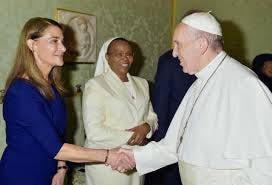Climate Change Was the New Religion — Until Its High Priest Lost Faith
As Gates abandons apocalyptic rhetoric, the faithful might ask whether fear ever was a sound foundation for truth.
In recent weeks Bill Gates published a piece that represents a marked shift in his public framing of the climate question. In “Three Tough Truths About Climate” he rejects the most apocalyptic formulations now common in public debate, insisting that although climate change will have serious consequences it is not a doomsday scenario that will bring about the end of civilisation, and arguing that policy should prioritise improving lives and building resilience as much as, if not more than, narrowly chasing temperature targets. This is not a rhetorical quibble. Gates’s new emphasis is that the moral metric of policy ought to be human flourishing and the protection of the poorest from foreseeable harms, rather than an incessant focus on headline temperature goals.
That change of tone is significant precisely because it departs from the more apocalyptic language Gates has used before. In his 2021 book he warned repeatedly that avoiding a “climate disaster” required trajectories to net zero and rapid, economy-wide change, and he used comparisons to fast, deadly pandemics to convey scale and urgency. The earlier posture treated the avoidance of catastrophic warming as an existential command. The contrast between those prescriptions and his recent insistence that civilisation will not collapse is instructive. It permits a reassessment of whether public language about climate has been proportionate to the evidence, and whether the moral energy of politics and philanthropy has been best expended by amplifying alarm rather than by balancing mitigation, adaptation and the alleviation of human suffering.
The implications of rhetorical excess are not abstract. There is a growing and well documented literature on climate related anxiety especially among young people.




